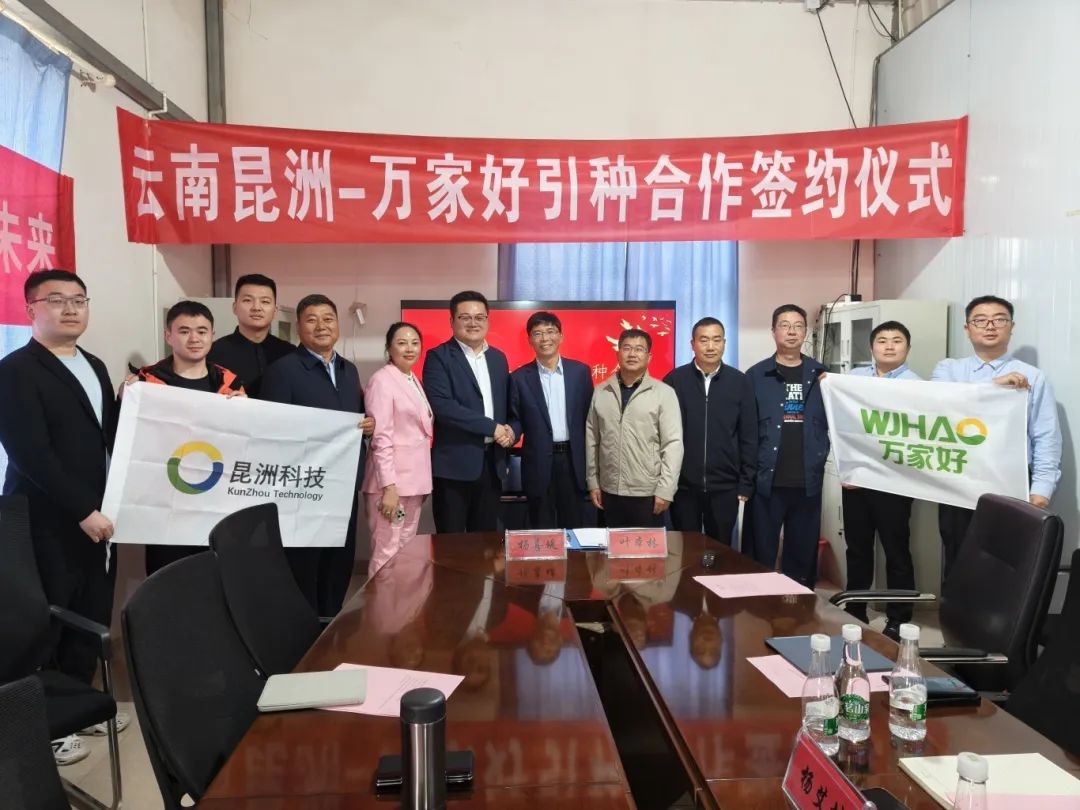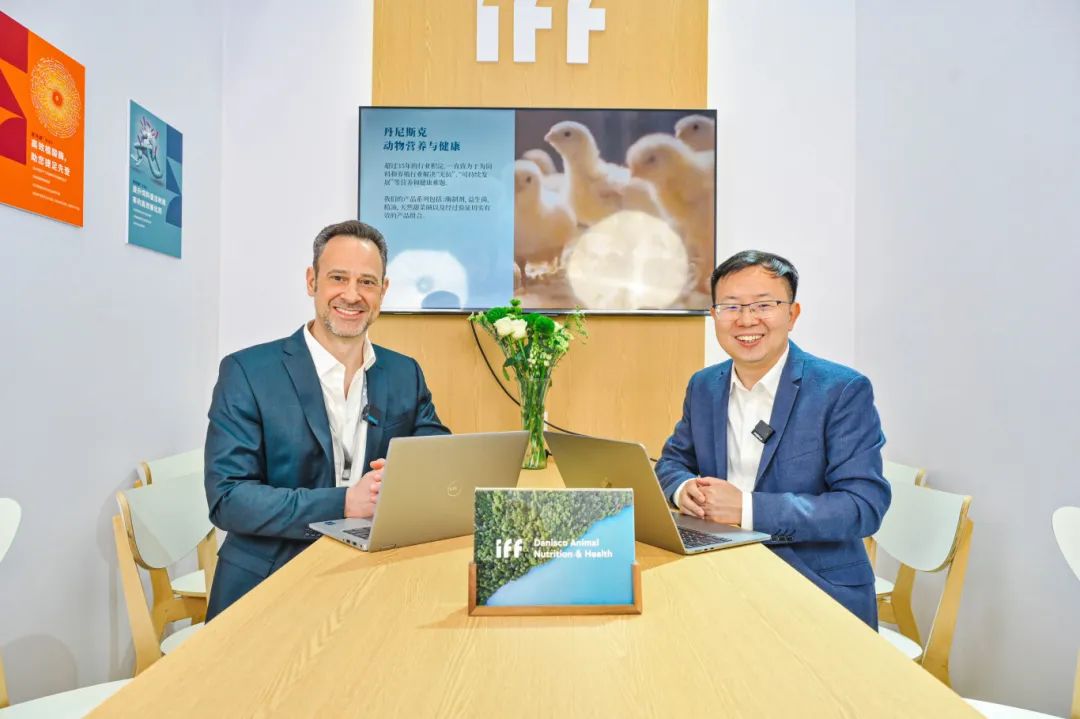As China’s pig industry grapples with rising costs, disease pressures, and cyclical downturns, Cargill and China Agricultural University have launched an elite training initiative dubbed the P+ Academy. With its first executive class set to graduate in July 2025, the program—seen as the “MBA of pig farming”—aims to bridge the gap between hardware investment and management capability. It cultivates high-level talent equipped with global insights, leadership skills, and practical knowledge, reflecting Cargill’s commitment to localized strategy and long-term development in China.
In a year marked by persistent volatility in China’s pig industry, a quiet but significant shift is underway. Cargill, one of the world’s leading agri giants, has partnered with China Agricultural University to launch the P+ Academy Executive Program—an intensive training course for industry leaders that some are calling the “MBA of pig farming.”
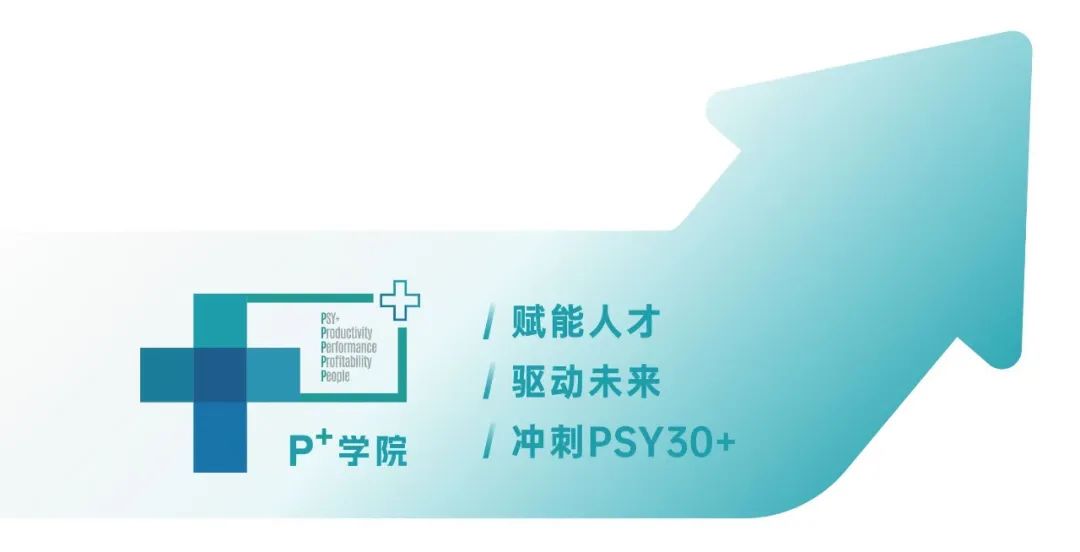
Launched officially in January 2024 after a high-profile signing at the 6th China International Import Expo in late 2023, the first cohort of more than 30 executives from pig farming enterprises has already completed five of six scheduled sessions. The class will graduate this July.
With its slogan “Rallying around the goal of PSY30+,” the program reflects the sector’s urgent need to boost productivity. China’s average pigs weaned per sow per year (PSY) lingers around 20—well below the 30+ benchmarks of Europe and North America. While biosecurity and genetics remain important, the real bottleneck, experts argue, lies in managerial capacity.
Replacing Tradition with Modern Management
The P+ Academy was conceived to address precisely this gap. As younger generations—those born in the 1990s and 2000s—take over pig farm operations, the traditional “master-apprentice” model is proving insufficient in navigating today’s complex challenges. From African Swine Fever (ASF) to environmental regulation and escalating feed costs, success now requires strategic thinking and systemic execution.
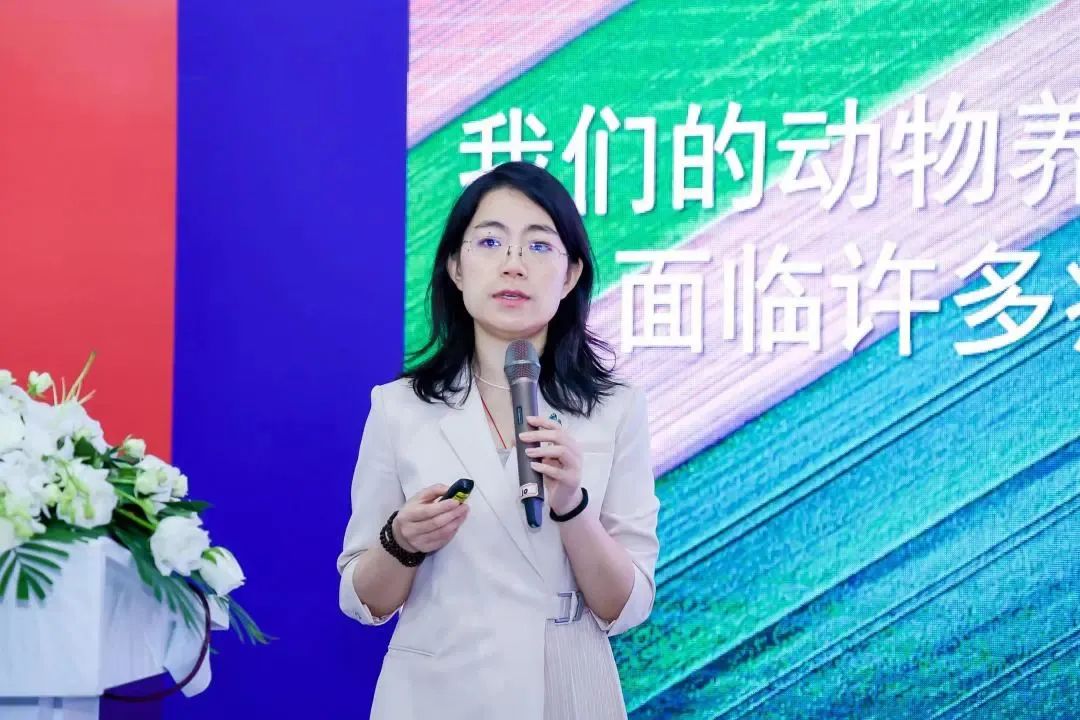
Hongfei Zheng
Hongfei Zheng, Global Senior Vice President of Cargill Animal Nutrition and Health and President of its Asia-Pacific division, remarked at the VIV International Livestock Summit that while many Chinese farms boast state-of-the-art infrastructure, their operational performance remains suboptimal. “Management software,” she said, “has not caught up with the hardware.”
The P+ Academy, whose name refers to five key drivers—PSY improvement, Productivity, Performance, Profitability, and People development—was designed as an integrated academic-industry response. It seeks to cultivate future industry leaders who combine theoretical insight with operational excellence.
Learning by Doing: A Practice-Oriented Curriculum
Unlike traditional university programs, the P+ Executive Program emphasizes real-world engagement. Its curriculum covers four major areas: global perspectives, leadership, farm management, and simulated production scenarios. Courses are jointly delivered by professors from China Agricultural University and Cargill experts from both China and abroad. High-level industry executives also contribute guest lectures.
The program’s format—built around case discussions, on-farm simulations, and cross-regional visits—reflects its core philosophy: management must be grounded in hands-on production reality.
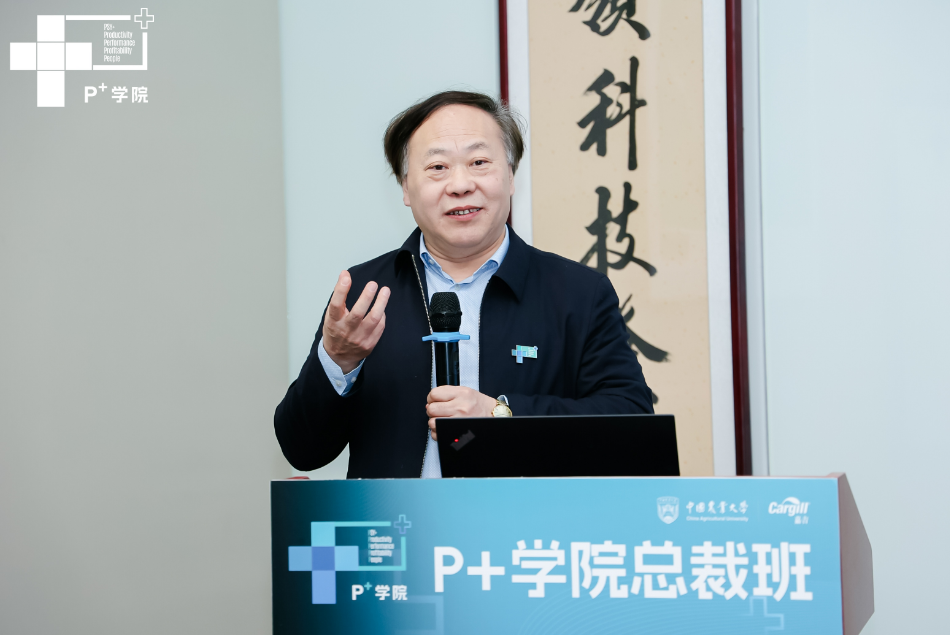
Professor.Qiao Shiyan
Academician Professor.Qiao Shiyan, who leads the P+ project, describes the structure as a “four-pillar framework.” Theory is drawn from academia, macro trends from external experts, operational insight from peer interactions, and modernization examples from international site visits.
The course has taken participants to regions as varied as Inner Mongolia’s Chifeng, Yunnan’s Kunming, and the technology hub of Shenzhen. In one overseas leg, students visited leading European pig enterprises to benchmark practices and models.
From Knowledge to Execution: Strategic Empowerment
During the fifth module held in Shenzhen in April 2025, the cohort engaged with top-tier instructors on issues ranging from industry trends, digital and intelligent transformation,financial strategy and corporate culture. Executives were encouraged to reflect on the key to Cargill’s 160-year resilience: the ability to balance change and stability.
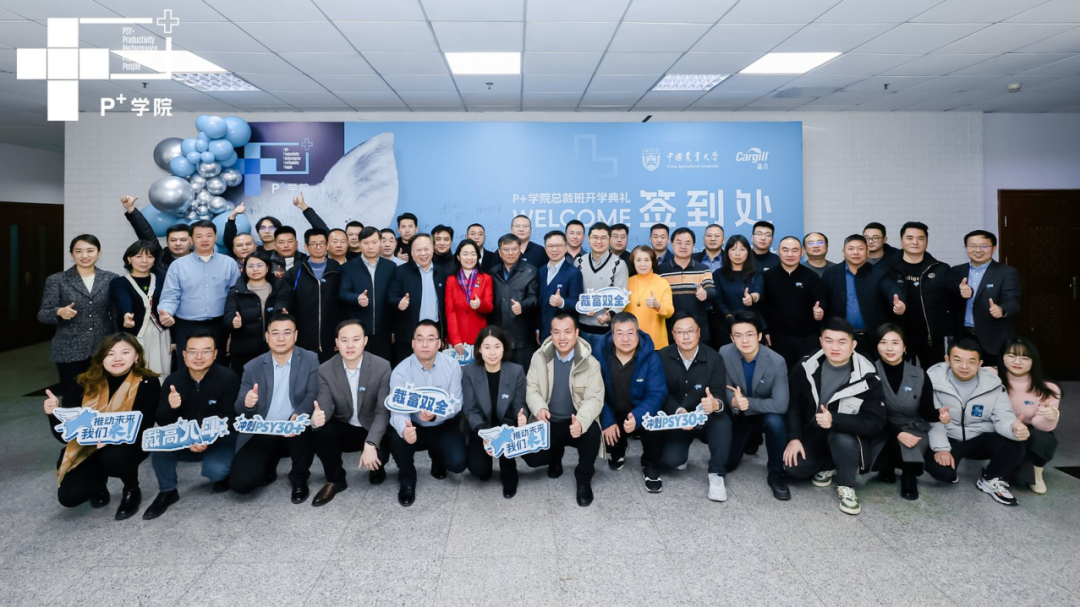
Zheng reiterated that for pig enterprises to navigate market cycles, they must master three capabilities: digital tools for precise decision-making, systems-level risk management, and a culture built on shared values.
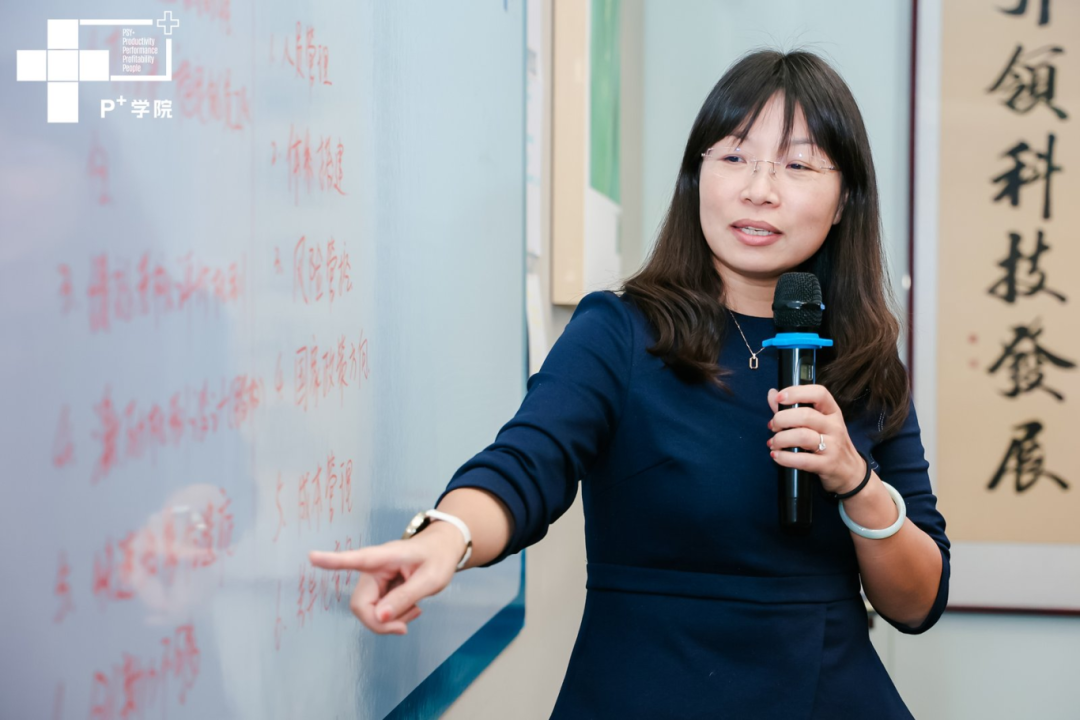
Lianjie Hou
One participant, Lianjie Hou, Chairman of Shandong Chengtou Jinkun Agriculture, shared how the program inspired organizational change. “It’s not just about upgrading farm equipment—it’s about establishing a strategic mindset and embedding a cultural DNA that supports long-termism,” she said.
Building a wider talent pipeline
Beyond the Executive Program, P+ Academy also includes other tiers of training, such as the Nutritionist Class and the Future Pig Farm Summit. Cargill aims to train more than 1,000 pig industry managers by 2027 and help incubate a series of PSY30+ benchmark farms.
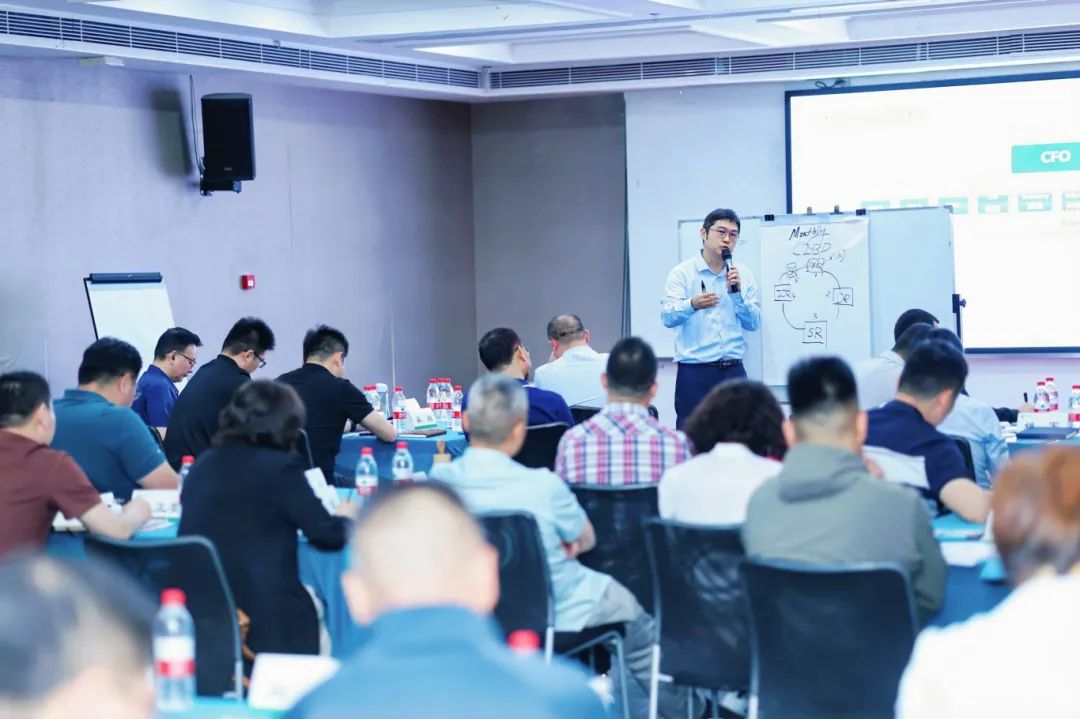
Investment reflects this ambition. Cargill has committed over CNY 10 million (about USD 1.37 million) to ensure the program’s quality and expansion.
The company’s broader philosophy is clear: enabling long-term capability is more valuable than delivering short-term solutions. This includes external programs like the Farm Manager Training Camp, Lean Production Masterclass, and Youth Entrepreneur Forum, as well as internal development tracks for Cargill’s commercial and technical teams.
For instance, the Farm Manager Training Camp offers modules in SOPs, data utilization, performance management, and communications. The “Lean Master” track focuses on practical skills like recruitment, job design, and efficiency optimization—followed by onsite support to implement what’s learned.
Toward a standardized, digital future
Looking ahead, Cargill is advocating for the formation of a “Standardized Swine Alliance,” bringing together large-scale farms, genetics companies, and feed specialists under a digitalized management platform. This coalition would standardize breeding, nutrition, and operations to boost efficiency and reduce costs.
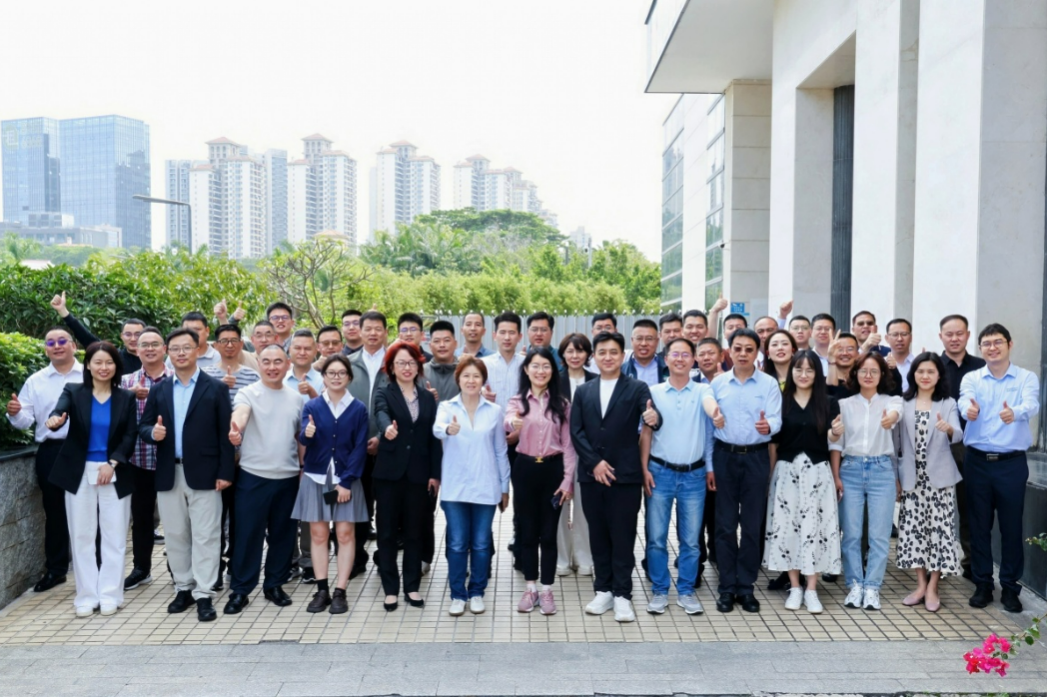
Internally, Cargill is also refining its farm service teams. Its commercial unit now runs thematic training clubs, while the technical group is sharpening its “three-meeting” approach—farm business reviews, production diagnostics, and collaborative project workshops with clients.
From top-tier executives to frontline managers, the P+ Academy represents more than a training course. It is a long-term strategy to rebuild China’s pig industry from the inside out—one leader at a time.
AgriPost.CN – Your Second Brain in China’s Agri-food Industry, Empowering Global Collaborations in the Animal Protein Sector.


